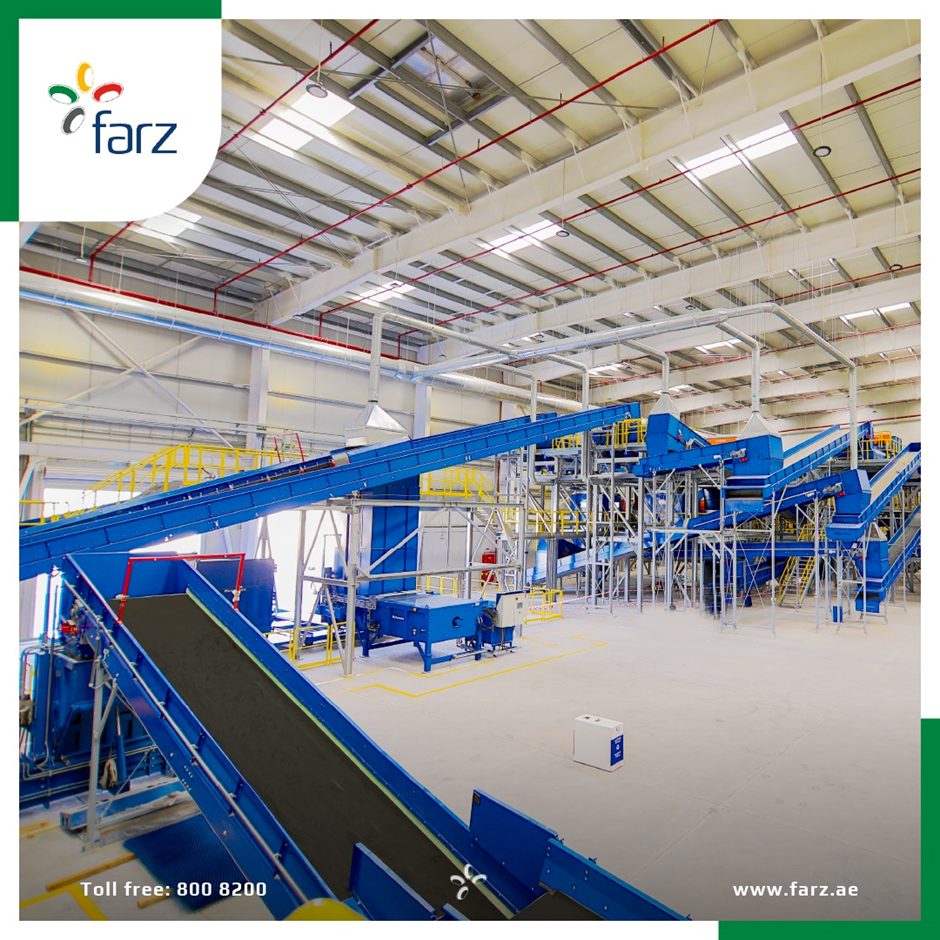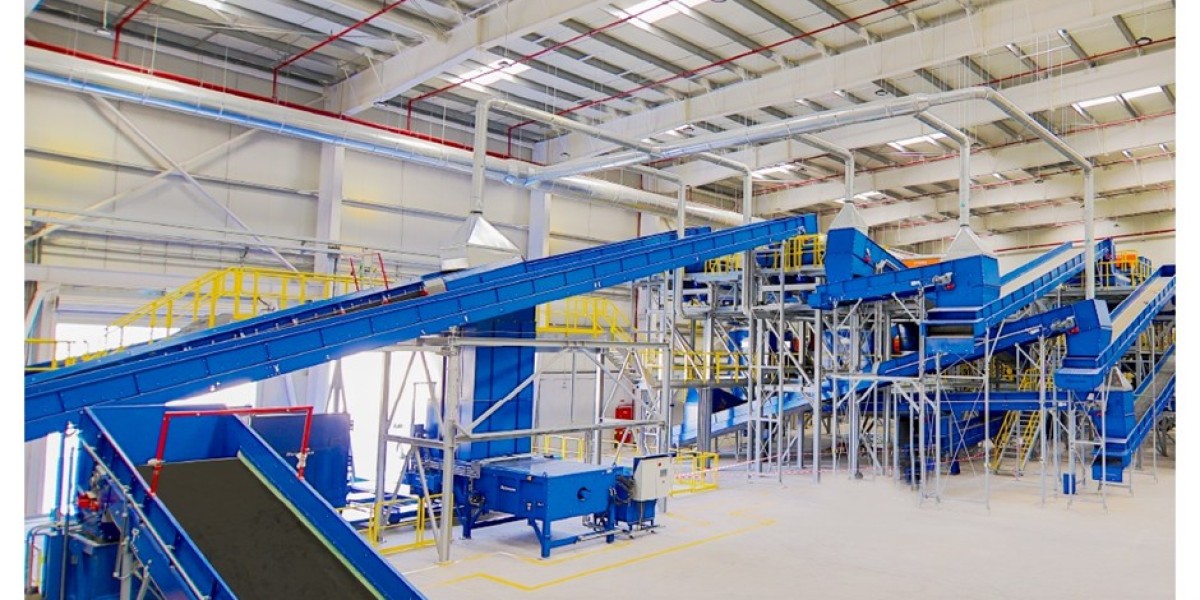Dubai, known for its iconic skyscrapers and luxurious lifestyle, is also making significant strides towards sustainability and environmental conservation. At the forefront of this transformation is the FARZ Materials Recovery Facility (MRF), an advanced recycling facility located in the National Industries Park. This state-of-the-art facility plays a pivotal role in Dubai's ambitious vision to recycle and reuse 75% of its waste, reducing the burden on landfills and minimizing environmental impact. In this article, we delve into the inner workings of the FARZ MRF and how it contributes to Dubai's sustainable future.

The FARZ Materials Recovery Facility
The FARZ Materials Recovery Facility is a testament to Dubai's commitment to sustainability. Built on a vast 45,322 square meter plot, it boasts impressive capabilities that set it apart as a leader in waste management and recycling.
- Efficient Recovery Rate:
- FARZ MRF is equipped with two separate lines—one dedicated to household waste and the other to commercial and industrial waste. This specialization allows for the efficient recovery of a wide range of materials.
- Automated System:
- Automation is at the core of FARZ MRF's success. The facility operates with minimal human intervention, thanks to its fully automated sorting lines for mixed Municipal Solid Waste (MSW). This high level of automation not only enhances efficiency but also reduces the risk of human error.
- Handling Capacity:
- One of the most remarkable features of FARZ MRF is its ability to handle a staggering 1,200 tonnes per day of MSW. This immense capacity ensures that a significant portion of Dubai's waste stream is redirected from landfills to the recycling process.
- Reducing Carbon Footprint:
- FARZ MRF is environmentally conscious, reducing approximately 19,250 kilograms of CO2 emissions per day. This reduction is a direct result of employing the latest technologies and maintaining the most efficient recovery rate among MRFs in the UAE.
The FARZ MRF Process
The recycling process at FARZ MRF is a well-orchestrated series of steps that transforms incoming waste into valuable recycled materials. Here is an overview of the process:
- Waste Unloading:
- Upon arrival at the facility, waste is unloaded and sorted based on its source, whether household or commercial/industrial.
- Automated Sorting:
- Advanced sorting lines equipped with cutting-edge technology, including optical sorters and conveyor belts, segregate materials efficiently. This process separates HDPE (high density polyethylene), PET, Aluminium, Ferrous materials, OCC (Old Corrugated Containers), Wood, and PE bags.
- Baling and Shipping:
- After sorting, the recovered materials are compacted into bales and prepared for shipment to recycling partners. These partners play a crucial role in transforming the recycled materials into new products.
Taking a Tour of FARZ
For those interested in witnessing the recycling process firsthand, FARZ MRF offers guided tours. These tours provide a behind-the-scenes view of what happens to segregated waste from the moment it leaves the recycling stations in the community to its transformation into valuable recycled materials.
Conclusion
The FARZ Materials Recovery Facility, at the heart of Dubai's sustainable transformation, plays a pivotal role in the city's ambitious goal of achieving Dubai Recovery. Its remarkable capacity, cutting-edge technology, and unwavering commitment to reducing carbon emissions exemplify Dubai's dedication to environmental stewardship. As Dubai continues its journey towards a greener and more sustainable future, facilities like FARZ MRF serve as beacons of hope, demonstrating that even in urban landscapes, we can make a positive impact on the environment and contribute to Dubai's ongoing recovery efforts.








